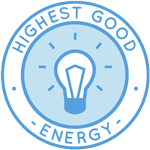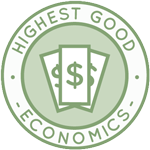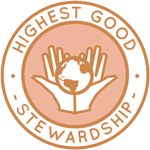Widespread and Lasting Sustainability – One Community Weekly Progress Update #393
What does a blueprint for widespread and lasting sustainability look like? One Community’s vision is a global collaborative of self-replicating eco-communities working together for the “Highest Good” of all people and life on this planet. We’re creating the necessary open source plans to launch this.
- Here’s our project overview
- Here’s our world-change methodology
- Here’s how this becomes self-replicating
- Here’s how we are open source and free-sharing all the do-it-yourself designs

OUR MAIN OPEN SOURCE HUBS
Click on each icon to be taken to the corresponding Highest Good hub page.
One Community’s physical location will forward this movement as the first of many self-replicating teacher/demonstration communities, villages, and cities to be built around the world. This is the October 4th, 2020 edition (#393) of our weekly progress update detailing our team’s development and accomplishments:
Widespread and Lasting Sustainability
One Community Progress Update #393
DONATE | COLLABORATE | HELP WITH LARGE-SCALE FUNDING
CLICK HERE IF YOU’D LIKE TO RECEIVE AN EMAIL EACH WEEK WHEN WE RELEASE A NEW UPDATE
YOU CAN ALSO JOIN US THROUGH SOCIAL MEDIA
ONE COMMUNITY WEEKLY UPDATE DETAILS
HIGHEST GOOD HOUSING PROGRESS
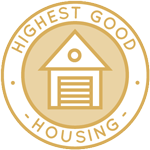 One Community is facilitating widespread and lasting sustainability through Highest Good housing that is artistic and beautiful, more affordable, more space efficient, lasts longer, DIY buildable, and constructed with healthy and sustainable materials:
One Community is facilitating widespread and lasting sustainability through Highest Good housing that is artistic and beautiful, more affordable, more space efficient, lasts longer, DIY buildable, and constructed with healthy and sustainable materials:
- Learn about how it relates to widespread and lasting sustainability: Our Upcoming Crowdfunding Campaign
- Learn about the different village models: 7 Sustainable Village Models
- Visit the open source portals for the first two: Earthbag Village OS Hub | Straw Bale Village OS Hub
This week Alvaro Hernández (Open Source Tech Consultant, Developer) completed his 26th week as a member of the team and continuing to work on the Hydro Energy Setup and Maintenance tutorial. This week Alvaro almost finished working on this article by changing and reviewing anchor links, editing some tables to make them clearer and more appealing, including the shared spreadsheet with the table data and calculator formulas, and preparing them as images to be inserted. You can see some images related to this work below on how they relate to widespread and lasting sustainability.
Jose Luis Flores (Mechanical Engineer) completed his 10th week helping finish the Net-zero Bathroom component of the Earthbag Village. This week Jose Luis researched the installation process of corrugated steel roofs. He applied the information to illustrate the assembly and construction process of the Net-Zero Bathroom roof plan. He made detailed diagrams in AutoCAD illustrating how the panels will be cut and installed. The diagrams for the cutting of the panels also showed how to use the leftover panels to cut out other panels in order to minimize material usage.
He made diagrams for the exterior roof and interior roof installation, illustrating where the panels overlap and the separation distance of the fasteners. Double sided butyl tape on the edge of the overlapping areas was shown in the diagrams, their purpose is sealing. The cut roof panels were fastened to their respective roof frames in the illustrations too. Pictures are below for this work, you can see how they relate to widespread and lasting sustainability.
Stacey Maillet (Graphic Designer) also completed her 9th week working on the final edits and revisions to the Murphy bed instructions. This week’s focus was getting about ½ way through the Wall section group. The sketch of the wall is now consistent and the wood piece layout is updated and all pieces to scale. Stacey adjusted the key layout so that all pieces in first header are used in pages 3-12. There are some areas that again may require a screw longer than 3″ but overall only a few questions remain on the first part of the wall and frame design.
This brings us to the point we can start doing a preliminary sheet layout between the groups, which is needed because there are many points in the wall design that there could be more information on the components and electrical which will be done simultaneously in some areas. Pictures of some of this work are below, see how they relate to widespread and lasting sustainability.
Hannah Copeman (Structural Engineer) also completed her 7th week helping complete all the Earthbag Village tutorials. This week Hannah continued the development of the Earthdome and Aircrete loft designs by testing out various design options to be able to maximize overhead space in the loft, while ensuring a versatile column-free dome interior. She began detailed analyses of the different options and started to update the AutoCAD drawings to reflect updated dimensions. You can see some screenshots of this work below on how they relate to widespread and lasting sustainability.
Jingwei Jiang (Landscape Designer) also completed her 2nd week working on the landscaping specifics of the Earthbag Village. This week Jingwei went through the whole planting list and SketchUp library and developed a planting concept adjacent to the building footprint. Plant selection was based on their light conditions, drainage requirements, soil requirements, and drought tolerant conditions.
Landscape design adjacent to the building clusters was created with the intent to embrace the building forms and transform to follow the building footprints. In other words, the landscapes and buildings can share the same pattern and be cohesive in this pattern. With this in mind, Jingwei came up with the circular form of landscape around building clusters shown below. These patterns seem duplicatable, but they all have different choices of plants according to previous zoning of the gardens.
The radius of circles used include 15-ft, 25-ft and 35-ft. They extend from the center of circular buildings all the way to the edge of the paved areas. Ideally, the outer band will be planted with plants that can define edge condition; the middle band should be deciduous trees and fruit trees; and the inner band should be plants like cactus to avoid safety issues. Nitrogen fixers need to be specified in the list, because they are the pioneer of woodland communities. All plants should be native plants in this condition, because the site is located in a national park area and invasive species are not first choices. See pictures below on how they relate to widespread and lasting sustainability
DUPLICABLE CITY CENTER PROGRESS
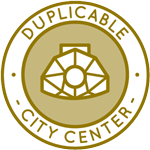 One Community is facilitating widespread and lasting sustainability through a Duplicable and Sustainable City Center that is LEED Platinum certified/Sustainable, can feed 200 people at a time, provide laundry for over 300 people, is beautiful, spacious, and saves resources, money, and space:
One Community is facilitating widespread and lasting sustainability through a Duplicable and Sustainable City Center that is LEED Platinum certified/Sustainable, can feed 200 people at a time, provide laundry for over 300 people, is beautiful, spacious, and saves resources, money, and space:
- Learn about this building and it’s function on widespread and lasting sustainability: Duplicable City Center Open Source Hub
This week Angela Mao (Sustainability Researcher) completed her 18th week as a member of the team and working on content for the Most Sustainable Lightbulbs and Light Bulb Companies and the Best Small and Large-scale Community Options for Sustainable Processing & Reuse of Non-recyclables tutorial.
This week, focused on by finding the best sustainable methods to get rid of waste. She found that composting, advanced thermal treatment, and mechanical heat treatment were among some of the most sustainable methods and did thorough research into those processes. Additionally, she refined her list of lightbulb products and thinks she has one more round of review before handing it over for final feedback. You can see some of this work in the pictures below on how they relate to widespread and lasting sustainability.
Ashish Hirani (Fire Protection Engineer) also completed his 12th week working on the City Center Sprinkler and Emergency Lighting Design. This week Ashish focused on preparing title blocks and setting up layout formats for the emergency and exit drawings for the basement, first and second floors. You can see some of the results of this work below on how they relate to widespread and lasting sustainability.
Ksenia Akimov (Plumbing Engineer) also completed her 4th week working on the Duplicable City Center plumbing designs. This week she focused on creating the sewer system underground layout and learning the related codes. Pictures of some of this are below, see how they relate to widespread and lasting sustainability.
Mario Strachan (Aerospace Engineer) completed his 3nd week working on the ground-based components of the City Center Water Catchment Design. This week he mainly focused on calculating various sizes of our pond at a constant depth to meet the volume requirements. He calculated the size of the pond based on a constant depth of 11ft. From his research an average pond has a depth between 8-12 ft so he decided on 11ft. If we were to go with a circular pond with a depth of 11 ft., the radius of the pond would have to be 22 ft.
If a rectangular shaped pond were to be considered, at a depth of 11 ft he would choose a width of 45 ft and length of about 45 ft. From his research the average person uses about 85 gallons of water a day. By multiplying that by the maximum number of people the City Center can hold, we get the total greywater usage of 3409.09 cubic ft. He then added that to the total rainwater to get the total volume needed for the pond. Pictures from the related spreadsheets are below, see how they relate to widespread and lasting sustainability.
Diego Guardiola (Mechanical Engineer) also completed his 3rd week helping with research for the Best Small and Large-scale Community Options for Sustainable Processing & Reuse of Non-recyclables tutorial. This week he completely reorganized all the information from previous research and his own research on this subject. Next he further explored the different types of non-recyclables and methods of dealing with them. All of his information from this week is a draft of sorts which he will continue to refine (sources, grammar, specifics, etc.) next week. Pictures related to this work are below, see how they relate to widespread and lasting sustainability.
Qiuheng Xu (Landscape Designer) also joined the team and completed her 1st week helping with the Duplicable City Center landscaping design and updated video walkthrough. This week she mainly focused on getting onboard and familiar with the Duplicable City Center project and making corrections to the walk through based on the suggestions list. You can see this list and some of the corrected areas below on how they relate to widespread and lasting sustainability.
Lindy Bray (Sustainability Analyst) also joined the team and completed her 1st week helping confirm and expand the research on the Most Sustainable Building Materials: Carpet, Flooring, Wood, Etc.. This week, Lindy checked previous research done on the flooring tutorial, modified the flooring types rankings and the flooring companies ranking.
Additionally, she found three new companies to add to the flooring rankings, and did respective research on them/added them to the flooring ranking. Lindy also corrected some grammar/typos and began typing up the sections for the three new companies (which should be completed next week). Pictures below show some of this work-in-progress, see how they relate to widespread and lasting sustainability.
HIGHEST GOOD FOOD PROGRESS
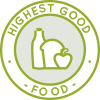 One Community is facilitating widespread and lasting sustainability through Highest Good food that is more diverse, more nutritious, locally grown and sustainable, and part of our open source botanical garden model to support and share bio-diversity:
One Community is facilitating widespread and lasting sustainability through Highest Good food that is more diverse, more nutritious, locally grown and sustainable, and part of our open source botanical garden model to support and share bio-diversity:
- Learn about the structures: Hoop House Hub | Aquapini & Walipini Open Source Hub
- See what we’ll be growing: Gardens & Hoop Houses | Large-scale Structures | Food Forest | TA
This week the core team finished the open source chicken coop step-by-step building instructions on our behind-the-scenes google doc. We then started working on the materials list. See below for pictures on how they relate to widespread and lasting sustainability

Finished Chicken Coop Building Instructions and Started Working on the Materials List – Click for Page
Sam’an Herman-Griffiths (Assistant Kitchen Manager) also completed his 2nd week working on the Transition Food Self-sufficiency Plan. This week Sam’an finished the first draft of a complete menu outline for 1 cycle of alternating vegan and omnivore meals based off of core food items of pasta, potatoes, sweet potatoes, and yams. You can see this first draft below on how they relate to widespread and lasting sustainability.
Jiayu Liang (Landscape Designer) also joined the team and completed her 1st week helping with the Aquapini & Walipini internal and external landscaping details. This week Jiayu reviewed and studied all materials/information/research resources/details about Aquapini and Walipini project thus far. Then, she used the sketch method to further outline and understand the project and created her initial proposal and clarifying question sets for both the internal and external landscape parts of the project. You can see some pictures of this initial work below on how they relate to widespread and lasting sustainability.
Henry Vennard (Mechanical Engineer) also joined the team and began helping continue the development of the climate batteries for the Aquapini/Walipini structures. This week Henry worked on getting up to speed by reading information about the aquapini and walipini designs, existing climate batteries, thermal lag and One Community in general. He also researched how to validate previous thermal models of the walipini and how to construct a new one. You can see some pictures related to this work below on how they relate to widespread and lasting sustainability.
HIGHEST GOOD EDUCATION PROGRESS
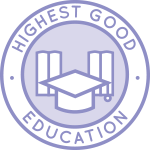 One Community is facilitating widespread and lasting sustainability through Highest Good education that is for all ages, applicable in any environment, adaptable to individual needs, far exceeds traditional education standards, and more fun for both the teachers and the students.
One Community is facilitating widespread and lasting sustainability through Highest Good education that is for all ages, applicable in any environment, adaptable to individual needs, far exceeds traditional education standards, and more fun for both the teachers and the students.
This component of One Community is about 95% complete with only the Open Source School Licensing and Ultimate Classroom construction and assembly details remaining to be finished. With over 8 years of work invested in the process, the sections below are all complete until we move onto the property and continue the development and open sourcing process with teachers and students – a development process that is built directly into the structure of the education program and everything else we’re creating too:
- Program Overview on how they relate to widespread and lasting sustainability: Education Open Source Hub
- How the components work together for widespread and lasting sustainability: How to use the Education for Life Program
- Lesson Plans for Life – Lesson Plans How-to
- Foundations of Outstanding Leaders, Teachers, and Communicators
- Curriculum for Life
- Teaching Strategies for Life
- Learning Tools and Toys for Life
- Evaluation and Evolution
This week Xiaolu Song (Landscape Designer) completed her 15th week working on the playground and other external details of the Ultimate Classroom. This week she modified the Lumion model and added the move effect into the model, adjusting all the people to move properly and then adjusting them again based on feedback. Pictures below show some of the scenes, see how they relate to widespread and lasting sustainability.
Shuwei Liu (Landscape Designer) also completed her 14th week working on the playground and other external details of the Ultimate Classroom. Shuwei also modified the Lumion model and added the move effect into the model, adjusting all the people to move properly and then adjusting them again based on feedback. Pictures below show some of her scenes, see how they relate to widespread and lasting sustainability.
HIGHEST GOOD SOCIETY PROGRESS
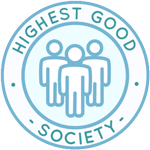 One Community is facilitating widespread and lasting sustainability through a Highest Good society approach to living that is founded on fulfilled living, the study of meeting human needs, Community, and making a difference in the world:
One Community is facilitating widespread and lasting sustainability through a Highest Good society approach to living that is founded on fulfilled living, the study of meeting human needs, Community, and making a difference in the world:
- Read the Highest Good society overview on how they relate to widespread and lasting sustainability: Highest Good Society
- Learn about the model for fulfilled living and sharing for widespread and lasting sustainability: A Day in the Life
- Learn about the 4 economic models: RBE | For-profit | Non-profit | Entrepreneurship
- Learn about our open source community collaboration and management software: The Highest Good Network
This week the core team began the review and updating of all pages connected to our Member Invitation pages. We completed a detailed review and updating of about 1/3 of those pages, some of which you can see below on how they relate to widespread and lasting sustainability.

Began the Review and Updating of All Pages Connected to Our Member Invitation Pages – Click to Visit
And Henry Nguyen (React Developer) completed his 34th week with the team and working on the Highest Good Network software. This week he improved the importing-data successfully, the import function is fast and accurate now. It works well with a large number of rows and needs around 5 seconds to calculate, create the tasks’ relationships, and save them in the database. He then started working with the display function to make it display the data faster. Some related imagery can be seen below, see how they relate to widespread and lasting sustainability.
Ross Edwards (Chief Imagination Officer, G3) completed his 24th week helping promote One Community. Ross is someone who found our project, loved what we are doing, and offered to just help contact people he (and we) thought might be interested in what we’re doing. This week’s focus was promoting our project and the One Community helping page to newspapers. You can see below this last week’s list of who he contacted and a version of the press release he is sharing and on how they relate to widespread and lasting sustainability.
TEKtalent Inc. (a custom programming solutions company) also continued with their 17th week helping with the Highest Good Network software. This week Nithesh and the TEK talent team were working on the Azure migration work around and identifying the gap in user profile functionality. The edit option in team PR was raised and is waiting for approval and merging.
Team and Project assignment inside the user profile were also worked on. This will allow the administrator to add a new team and project assignment to a user from their Profile Page. Also the list of existing team and projects of that user will be displayed there. Upon clicking “Add Team / Project”, a new popup shall display and the admin can search for a team or project and then assign that to a user. The task was completed this week up to the popup and saving and assigning is now in progress. See below for pictures on how they relate to widespread and lasting sustainability

Azure Migration Work Around and Identifying the Gap in User Profile Functionality – Click for Page
Wen Zhang (Software Engineer) completed her 19th week as a volunteer working on the Highest Good Network software. This week Wen’s work was composed of two parts: 1. making some changes to the badge display based on feedback – mainly added scrolling functions, and 2. researching on the storage of images. We have 3 options regarding where we store all the images. None of the options would involve storing images in the database.
Dropbox would take the pressure off our server but we’re not sure about speed and reliability. The same is true if we use our website as a host. The 3rd option would be to keep them on Azur, which is straightforward because we use Azur for production, but this may increase the bill from Azur. Some pictures of this work are below, see how they relate to widespread and lasting sustainability.
Yiqi Feng (Software Engineer) continued with her 13th week as a member of the Highest Good Network software team. This week Yiqi formatted the text in the “i” popup so it includes proper formatting with bullets in the text. She added an “i” icon under the “Add Time Entry” button and implemented the mouseover functionality for both icons. She also added and tested a 10-hour alert functionality for the timer. You can see some of this work below on how they relate to widespread and lasting sustainability.
Jerry Zhang (Software Engineer) completed his 8th week working on the Highest Good Network software. This week, Jerry discovered the source of a bug with one of the API routes. Additionally, the design for how to implement individual notifications on change of why, intent, and endstate infos was decided on. Work for this feature has started on the backend first. By next week, Jerry hopes to have all of the TaskNotification routes working. Pictures are below showing some of this work, see how they relate to widespread and lasting sustainability.
Noor Qureshi (Insurance Researcher) completed her 8th week helping research One Community’s insurance options. This week Noor worked on refining the Blue Cross Blue Shield Health insurance plans by only keeping plans that were relevant for the goals of this project and deleting the rest. She then looked for a more thorough summary of the benefits and coverage and organized the costs that way. She organized it in a way that would make it easy to compare the Molina Healthcare plans as well as allowing for a more streamlined and standardized way to compare them. You can see some of this work below on how they relate to widespread and lasting sustainability.
Jun Hao (Software Engineer) also completed his 6th week working on the Highest Good Network software. This week Jun started to work on the design and the look of the UserProfile component. He changed the previous single column design to double column for better layout on mobile devices. He also changed the UserProfile Edit page into the same style with UserProfile for better consistency. The form validation functionality was also added to the UserProfileEdit component. You can see some of this work below on how they relate to widespread and lasting sustainability.
Jaime Arango (Graphic Designer) also completed his 3rd week helping create the YouTube and social media graphics for these update blogs. This week he created images for weekly progress updates #399, #402, #403, #404 and #405. You can see these newly created images below on how they relate to widespread and lasting sustainability.
Jin Hua (Web Marketer and Graphic Designer) also helped update our SSL successfully on www.onecommunityranch.org, installed Cloudflare on onecommunityglobal.org, and performed several rounds of functionality auditing & testing. You can see pictures of some of this work and process below on how they relate to widespread and lasting sustainability.
AND WE PRODUCED THIS WEEKLY UPDATES BLOG – CLICK HERE TO SUBSCRIBE
FOLLOW ONE COMMUNITY’S PROGRESS (click icons for our pages)
INVESTOR PAGES
GET INVOLVED
DONATE | WAYS ANYONE CAN HELP | MEMBERSHIP
CLICK HERE FOR ALL PAST UPDATES
 One Community
One Community